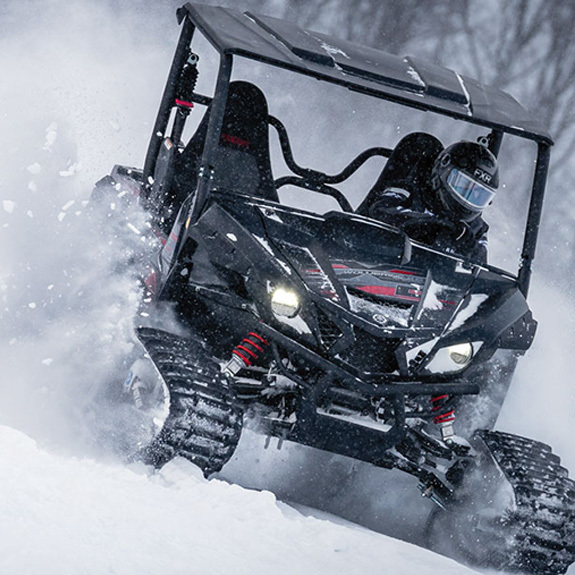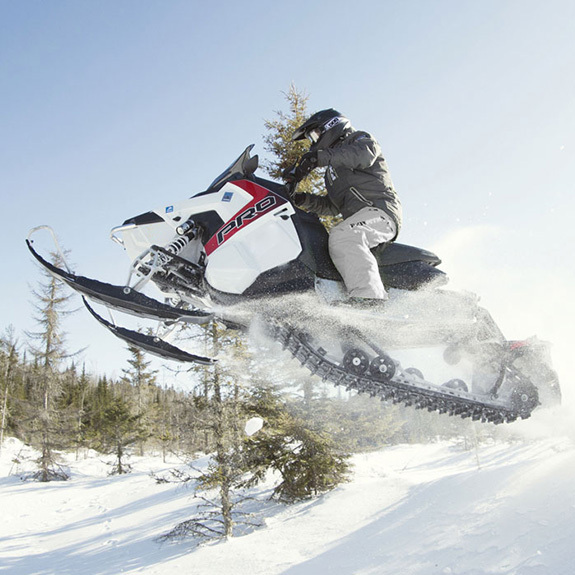How to choose forklift tires wisely?
*This article is based on the former version of "Essential considerations for proper forklift tire selection". The text was updated in June 2025.
In today's fast-paced industrial environments, selecting the right forklift tire is not just a maintenance decision but an investment in safety, efficiency, and operational costs. Every fleet manager understands that tires are fundamental to handling operations. Your choice of tires directly impacts your budget, equipment performance, and longevity.
Under the Solideal brand, our experts have dedicated decades to designing forklift tires that meet the unique mobility challenges in various industrial settings.
Key factors to consider when choosing forklift tires for safety and performance
Choosing the right forklift tires involves balancing multiple factors that impact operational efficiency and workplace safety. Load capacity and application intensity are crucial considerations. Each tire has specific weight limitations that must align with your heaviest loads plus the forklift weight. Exceeding these limits accelerates wear and creates hazardous operating conditions.
Your environment and application intensity will influence tire selection. Rough outdoor terrains typically require pneumatic options with deeper treads for stability and traction. Usage intensity reflects the thermal stress on tires; longer, frequent, and heavy-duty trips increase heat buildup, reducing cooling time. Excessive strain degrades rubber, leading to cracks and tire detachment, causing forklift downtime. Choosing tires suited to the application is essential to avoid thermal failure.
Our intensity calculator quantifies various levels of solid forklift tire applications, considering basic usage parameters such as lifting capacity, work environment, and idle, travel, and maneuvering periods.
Budget vs. lifecycle planning
While initial purchase price is significant, the true cost of replacing forklift tires includes longevity, downtime during changes, and impact on equipment performance. A tire suited to your use generally offers extended lifespan and reduced maintenance, providing a better return on investment.
Regardless of the forklift tire model you choose, Solideal On-Site Service offers maintenance services to keep your operations moving.
Comparison of pneumatic, solid, and industrial pneumatic tires
Understanding the distinct characteristics of each tire technology aids informed decision-making. Solid resilient tires and solid press on tires excel in demanding environments where puncture resistance is critical. These tires feature robust rubber construction that eliminates downtime due to punctures while offering excellent load capacity. However, they provide minimal shock absorption.
Industrial pneumatic tires for forklifts offer superior traction and cushioning on uneven surfaces. Their air-filled design effectively absorbs impacts. The downside is their susceptibility to punctures and the need for regular pressure checks to maintain optimal performance.
Remember: Tire technology comparisons are general. The choice depends on several factors, primarily your specific usage.
Non-marking options for clean facilities
Food processing, pharmaceutical manufacturing, and retail warehouse industries often require non-marking tires to prevent floor contamination. These specialized variants use compounds that do not leave black marks while maintaining necessary performance characteristics. Clean operation is essential in facilities with strict cleanliness requirements.
For mixed applications, many operations choose dual-use tires that balance the benefits of different types. These hybrid solutions offer reasonable performance in various conditions without requiring tire changes when transitioning between indoor and outdoor environments.
Predictive wear monitoring
Tire wear patterns have evolved into valuable diagnostic tools. Uneven wear often indicates alignment issues or improper loading practices.
Replacing forklift tires at the right time is crucial to ensuring equipment safety, performance, and durability. Premature wear or damage can lead to failures, affect handling, and increase operator risks.
Replacement criteria vary by tire type and manufacturer recommendations. For Solideal tires: resilient band tires should be replaced when rubber height reaches two-thirds of the original height; solid resilient tires should not exceed the 60-J line; and industrial pneumatic tires should be replaced as soon as tread wear is evident. Remaining vigilant to wear signs helps prevent unexpected downtime and preserves the machine.
Environmental considerations
Environmental conditions significantly impact tire performance and longevity. High-temperature environments accelerate rubber degradation, while exposure to chemicals in manufacturing environments can compromise structural integrity. Latest tire formulations incorporate compounds specifically designed to withstand these environmental challenges, extending lifespan even in extreme conditions.
When selecting tires, consider not only current needs but also anticipated changes in your handling processes. Increasing load requirements, facility expansions, or new surfaces may require different tire specifications. Feel free to consult your representative or distributor to make a choice that offers operational flexibility while maximizing your investment.
Optimizing forklift performance with Solideal tire solutions
Solideal's extensive range of solid press-on tires offers specifically designed solutions that address specific operational challenges. These tires deliver exceptional stability and durability in high-intensity environments where consistent performance is non-negotiable.
For operations covering diverse terrains, our engineering team has developed industrial pneumatic bias tires that balance cushioning and durability. Unique tread compounds provide excellent traction on various surfaces while protecting your equipment from excessive vibrations and wear. This technology helps extend component life across your handling fleet.
Comprehensive solutions beyond tires
Your handling equipment deserves comprehensive support beyond tires. Our industrial wheels complement our tire offerings with precision-engineered mounting solutions that optimize performance throughout your fleet. Perfect fit reduces maintenance requirements and enhances operational reliability.
Our application-specific approach ensures you're never forced into a one-size-fits-all solution. By analyzing your exact operational requirements, from load characteristics to ground conditions, we provide tire technologies that maximize efficiency and minimize downtime. This tailored methodology has helped handling professionals achieve improvements in safety metrics and operational costs.
Towards Optimal Fleet Performance
Selecting the right forklift tire is a significant decision for your operations. By carefully assessing your specific operational needs, whether load requirements or environmental conditions, you prepare your business for sustainable success.
Remember, the most effective tire choice balances immediate budget constraints with long-term value. Some options may require a higher initial investment but generally offer extended lifespan and reduced downtime. This approach transforms tires from mere consumables into strategic assets that directly contribute to operational excellence.
We encourage you to use this guide when evaluating your specific requirements and consult tire specialists who understand your unique challenges. Your commitment to making informed decisions on seemingly small components like tires ultimately creates safer workplaces and more efficient operations.



























